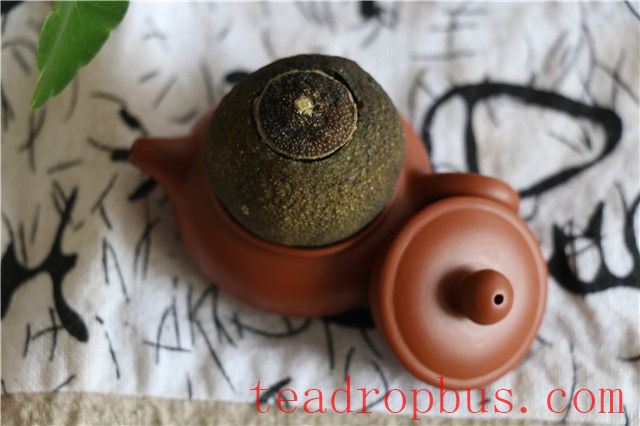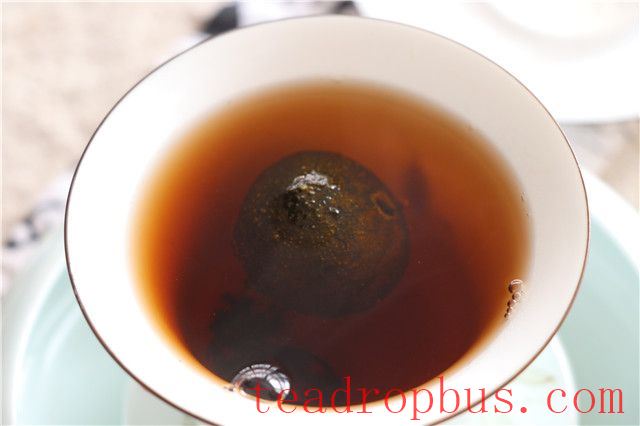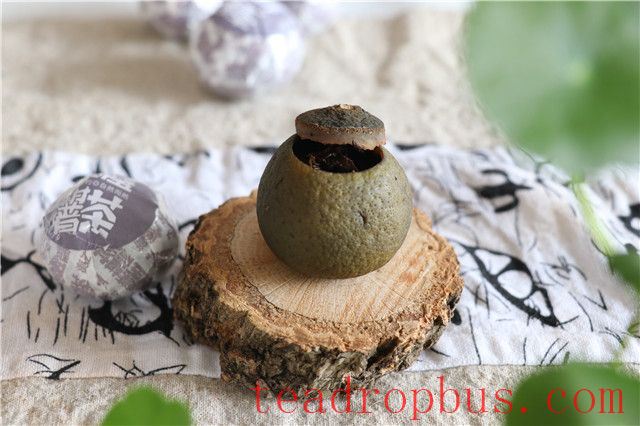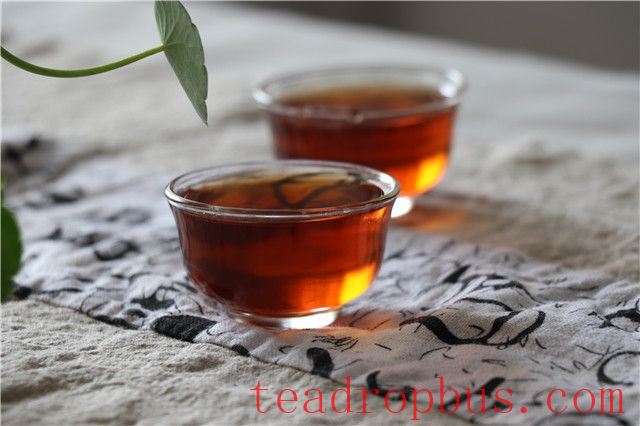According to Traditional Chinese medicine, Green and aged tangerine Peel is slightly warm in nature, bitter and spicy in taste, and enters the liver and gallbladder meridians. It has the effects of regulating liver Qi, relieving sore throat, eliminating food stagnation, and protecting cardiovascular health. When combined with ripe Pu'er Tea, its Health benefits naturally combine the advantages of both: it can strengthen the spleen and stomach, relieve cough and phlegm, reduce fat and weight, beautify the skin, and delay aging, among other effects.

Xiao Qing Gan contains the highest amount of volatile oils, with a slightly astringent and sour taste. The fruit flavor in the tea is relatively strong, with a clean, sweet aftertaste. Although the limonene in the green peel cannot be absorbed by the human body, it can help dilate the upper respiratory tract. Drinking Xiao Qing Gan can improve chronic pharyngitis, resist smog, and facilitate breathing for those with nasal congestion due to rhinitis or colds.
What are the side effects of drinking Xiao Qing Gan?
1. Freshly made Xiao Qing Gan tea can be somewhat stimulating, so people with poor gastrointestinal health should avoid drinking Xiao Qing Gan, as it may affect gastrointestinal function and increase their burden.
2. The tea polyphenols in Xiao Qing Gan can lead to dry stools and constipation if consumed excessively. Therefore, patients with constipation should avoid drinking Xiao Qing Gan, as it could exacerbate their condition.

3. Women can drink Xiao Qing Gan moderately under normal circumstances, but they should not consume it during menstruation or when experiencing abdominal pain, as this could have adverse effects.
4. Lastly, never use Xiao Qing Gan tea to take any medication.
The contraindications and precautions for drinking Xiao Qing Gan
First, for people with constipation, drinking Xiao Qing Gan will further dry out the stools and hinder the recovery of the digestive system.
Second, children, elderly people with weak constitutions, individuals with poor liver and spleen health, and those with qi and blood deficiencies should also avoid drinking Xiao Qing Gan.

Third, people with weak nerves who experience insomnia easily should limit their consumption of Xiao Qing Gan and other teas, or drink them at appropriate times.
Fourth, women who are pregnant, menstruating, or breastfeeding should avoid Drinking Tea or consume it sparingly.
Fifth, Xiao Qing Gan should be drunk warm rather than hot. The ideal temperature for drinking Xiao Qing Gan is between 25 to 50 degrees Celsius, not exceeding 60 degrees. It is also not recommended to drink leftover tea or cold tea.

Firstly, Xiao Qing Gan is both intense in flavor due to the tangerine peel and rich due to the ripe tea. For people with weak constitutions and poor liver health, drinking Xiao Qing Gan is not recommended. Secondly, for people suffering from severe insomnia and those with nerve weakness, drinking Xiao Qing Gan can cause negative effects such as insomnia. Lastly, sensitive individuals, children, and women during special physiological periods should also avoid drinking Xiao Qing Gan.